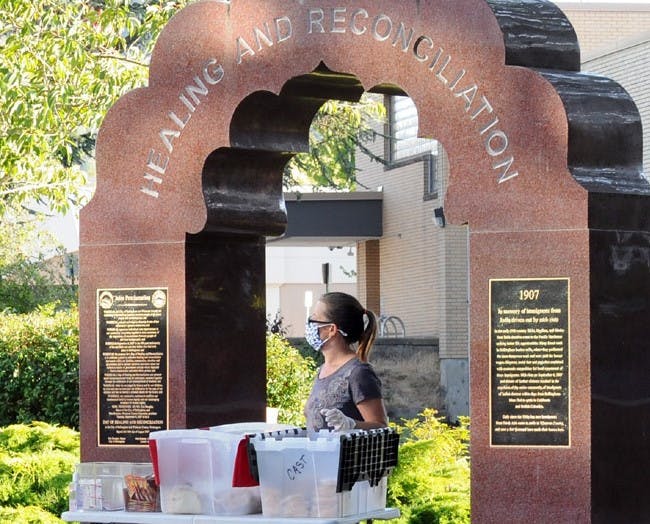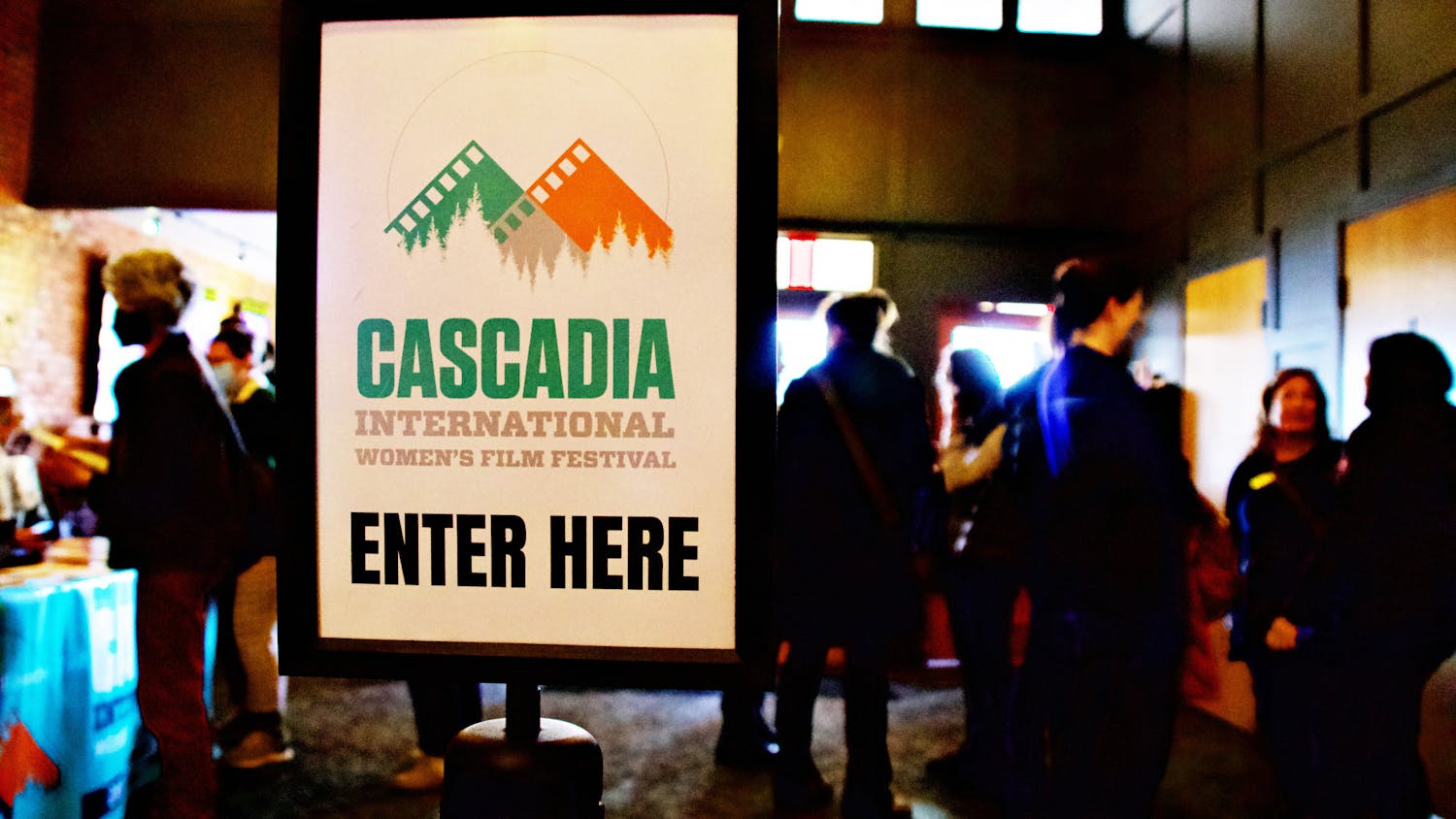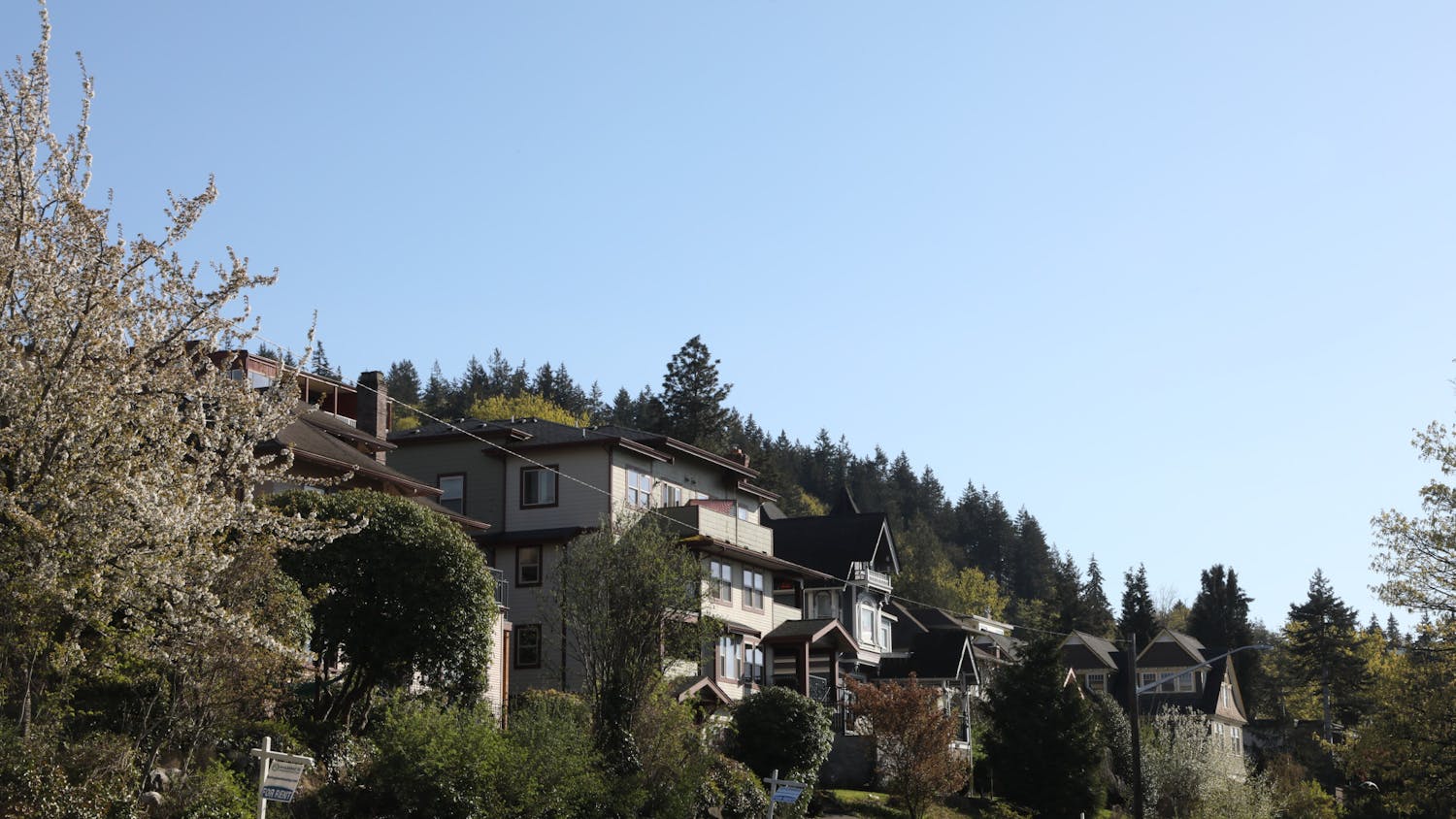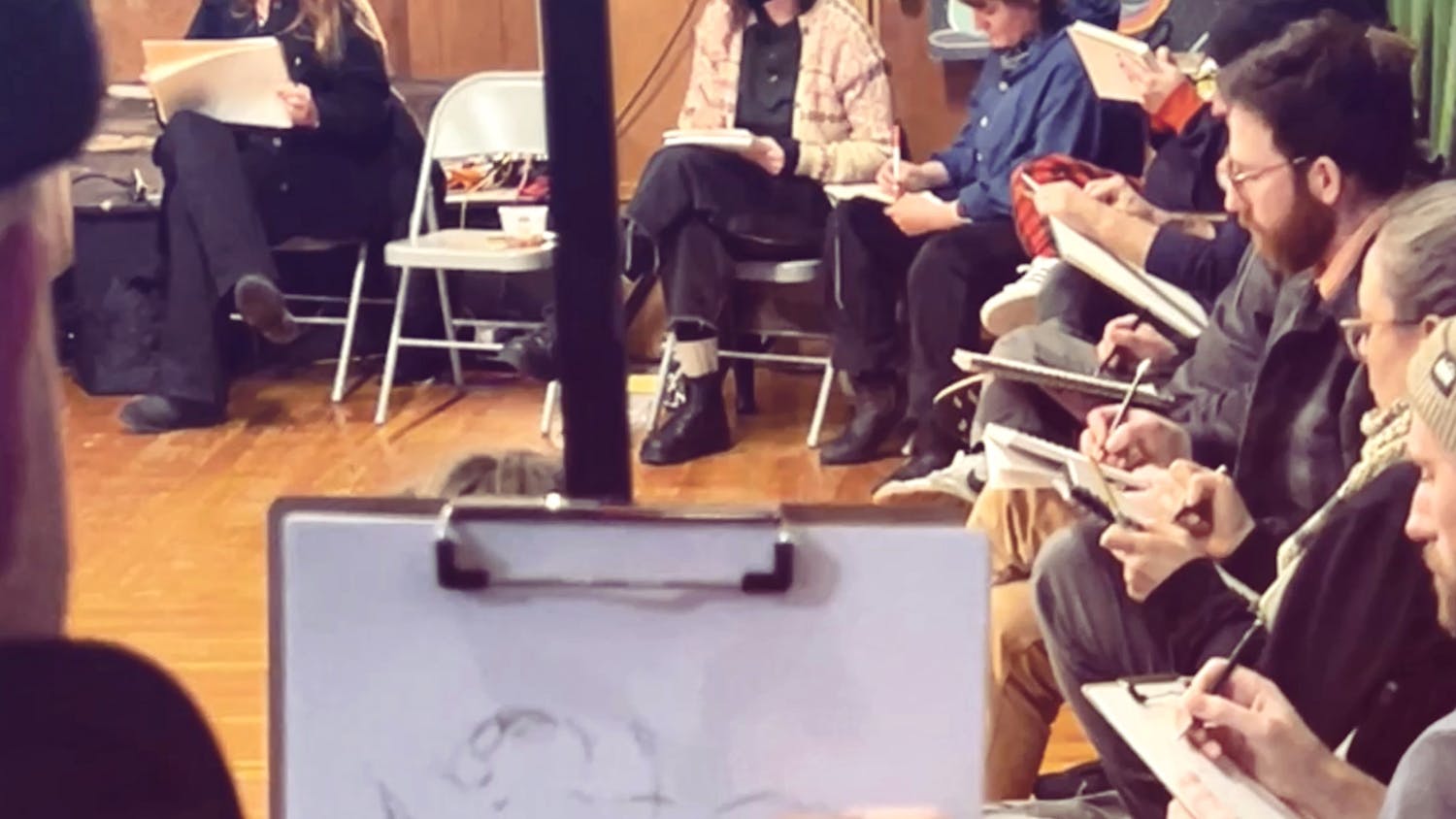
A loss of connection felt, the passion for helping others remains.
The volunteer program known as Coffee and Sandwiches Together, or sometimes just as “CAST” by its employees, has operated in Bellingham since 1999.
The organization serves the Bellingham community at the Arch of Healing and Reconciliation every Monday, Tuesday and Wednesday of the month. The Arch is a monument located in downtown Bellingham in front of the library.
Volunteers typically pass out sandwiches, coffee, hot cocoa and other donated necessities to people experiencing homelessness in Bellingham. Since March, changes have been made, said Janie Pemble, Interfaith’s outreach manager.
As an outreach program operating under the city’s Interfaith Coalition, the volunteers keep the program running, Pemble said.
Interfaith is a group of around 40 church congregations working together to combat homelessness in Whatcom County, according to the Interfaith website.
“We are all simply passionate about helping others,” said Dan Larguier, a current volunteer from the Sacred Heart Catholic Church.
In March, during the first few weeks of COVID-19 uncertainty, Coffee and Sandwiches Together came to a sudden halt.
“There was a huge question mark on if a program like this, in such a public space, could carry on,” said Lindsey McGuirk, Interfaith’s volunteer engagement and communications manager.
Many other programs like Coffee and Sandwiches Together had no way to abide by COVID-19 rules, McGuirk said.
“But to CAST’s benefit, it has super-dedicated volunteers,” Pemble said.
After pausing for multiple weeks, with the support of many eager volunteers, the program was to continue in a revised manner, McGuirk said.
“Many volunteers had to drop out because they were in a high-risk category, and ended up being pretty upset about it, so they found different ways to help,” Pemble said.
Larguier said he experienced something similar. Larguier is a member of Sacred Heart Parish, one of the churches that works with Interfaith.
On Mondays, the Catholic Newman Center in Bellingham takes overall responsibility of the organization's operations. The Catholic Newman Center is Western’s “home away from home for Catholic university students,” according to their website.
Many Newman Center students left campus once COVID-19 hit Bellingham, so responsibilities fell onto the Sacred Heart Catholic Church, whose priest also preaches to the Newman Center, Larguier said.
“Before COVID, I would be there every week, but I haven’t been as involved with the downtown operations because I’m in my 70s,” Larguier said. “I’ve been more, you know, the person coordinating it, making up the schedule and things. I also help with getting new volunteers involved.”
Larguier said he most enjoyed meeting new guests and chatting with them.
“It always made me feel like we were provided a service that was needed,” Larguier said. “Helping others is what I feel I am called to do, what we are all called to do.”
Juan Balmedina was one of the Newman Center’s student volunteers who stopped volunteering once COVID-19 hit.
“I found out about CAST through the Newman Center on campus,” Balmedina said. “I wanted an opportunity to help our homeless community, so I volunteered on Monday nights.”
Balmedina said he believes that conversations are even more important than the food.
“My favorite part was just getting to meet the people we were serving. Many of them feel like they’re invisible, so we just give them the few minutes of humanity that they deserve,” Balmedina said.
“We were all trying to figure out what COVID meant for us individually, but I’m definitely looking forward to volunteering again soon,” Balmedina said.
Since the reduction in student volunteers, those that remain have seen an unfortunate loss of connection between themselves and those that they serve, McGuirk said.
“There is less of a community feel to it because things happen so quickly now, whereas before we could take more time to talk with our guests, and they could just hang out on the grass and eat,” McGuirk said.
The organization now requires and provides masks for both servers and guests. Guests are moved quickly through the lines now.
“Talking through a mask isn’t the same as a face-to-face-conversation,” McGuirk said.
While changes have been made, and connections have been lost, the organization is still happy to be able to help out and serve what they can, Laguier said.
The type of food the organization has been able to serve has changed as well, Pemble said.
In the past, volunteers would bring containers of hot water to make hot beverages for their guests, Larguier said.
“We would make them coffee or hot chocolate, or make mochas for them, which they wouldn’t normally be able to afford,” Larguier said. “Then we would have cups of soup that they would eat around us and chat.”
Since the pandemic began, Coffee and Sandwiches Together has cut back on bringing hot water and even handing out toiletries due to contamination concerns, Larguier said.
“We still offer ramen cups, and coffee and hot cocoa packets, but they have to find their own source of hot water,” Larguier said.
Volunteers of the organization have been able to supply bananas and oranges, which both have thick peels that make it easy to safely distribute them, Larguier said.
Since COVID-19, the organization’s volunteers are split into three groups instead of five, Pemble said.
“We had some volunteers whose sole job was to go out and purchase all of the supplies, but since COVID, all of the supplies are being delivered by Costco or Amazon, to a volunteer’s house, then dropped off at the Ukrainian Evangelical Church,” Pemble said.
There are sandwich makers, packers, transporters and servers, Pemble said.
“But to keep our volunteers as safe as we can, we have combined a few of the jobs. Sandwich makers also pack what they make at the church, and transporters serve the food once they have driven it to the Arch of Healing and Reconciliation,” Pemble said.
Servers set out the sandwiches, fruit, and prepackaged snacks and drinks on two socially distanced tables and let the guests pick out what they want.
The Arch was unveiled to the city in 2018. In February, the City of Bellingham offered the Arch to Interfaith as a location for Coffee and Sandwiches Together.
“CAST came to us just having a difficult time finding a location where they had a willing property owner. So that’s where we came into play,” said Tara Sundin, the City of Bellingham’s community and economic development manager.
It’s not uncommon for the public to have fear of people experiencing homelessness, Pemble said.
“There’s a lot of misunderstandings, which made it difficult for us to find a spot that was good for the neighborhood, the volunteers and our guests,” Pemble said.
The city acts as a landlord for Coffee and Sandwiches Together, Sundin said.
Many of the other programs involved in helping the less fortunate have been unsuitable in COVID-19 times due to their indoor locations, so the need for the organization has increased greatly, Sundin said.
“We are so grateful to the city,” Larguier said. “They have been so wonderful.”
The Arch has since become a place where servers and guests feel comfortable and safe, Pemble said.
“The need for food will always be there until the bigger issues that place our guests in the positions they are in are fixed. We help their immediate needs, and hope that with a full stomach, our guests can better face their struggles,” Larguier said.
Anyone can help the less fortunate in the Bellingham area, and there is a job for anyone in Coffee and Sandwiches Together, Pemble said.
If interested, future volunteers are encouraged to check out the Interfaith Coalition website and fill out a volunteer form.





